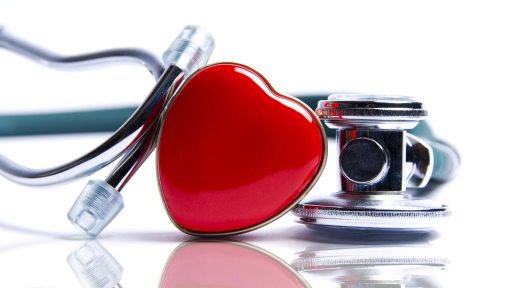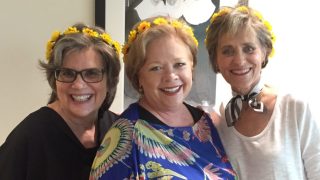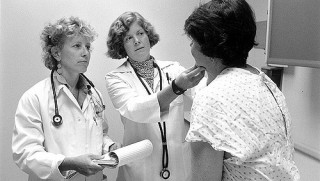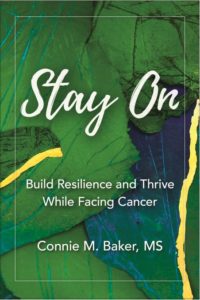Your Healing Dream Team is broadly defined.
It may include supportive friends, family, and pets, your medical team, nutritionists, massage therapists, acupuncturists, and more. Members of this team support you in your forward progress.
Surround Yourself with Supportive People
Identify your support team and decide how best to keep people informed in a way that is not a burden to you. This may range from simple to elaborate. I wanted to be able to tell my story, so I created an email list of friends and family for sending periodic updates. Will the people around you rally to support you in your health decisions and provide encouragement along the way? If they are Debbie Downers, honor their feelings, but to the extent you are able, create distance so you can focus on the positive. It is okay to think about yourself and voice your needs. Spend time with life-giving people.
The Ring Theory
A few years ago, psychologist Susan Silk and her friend Barry Goldman wrote a piece in the Los Angeles Times about a concept they called the Ring Theory. The idea with Ring Theory is “Comfort In and Dump Out.” Now, on the other side of treatment, I am even more impressed with the concept, and you may want to share it with family and friends.
Draw a circle on a piece of paper and put the patient’s name in it. If you are the patient, put your name in the circle. Then draw another circle around that and put the name of the person or persons closest to you in the next circle. Keep adding circles and people. The person in the middle can yell, scream, cry, ask why, whine, etc. to anyone in any of the circles. That’s dumping. People can dump out to larger circles, but they cannot dump into smaller circles.
Emotional Energy
Dr. Jill Bolte Taylor, the author of My Stroke of Insight, tells about her experience as a neuroanatomist having a
I found it was essential to have people I could trust to listen to my concerns without causing them additional stress. Sometimes the people closest to me had a difficult time processing the news as it was happening. I learned I needed to wait until I had all the information and a solution before updating them. There were others with whom I could confide when I needed a listening ear.
Delegate Research and General Care
After your diagnosis, you may want to explore options for your care. However, the idea of research may be daunting. If you want to know about treatment approaches, for instance, but don’t have time or energy to thoroughly explore it yourself, delegate the research to a trusted person who knows you well enough to sift through the material with your best interest in mind
People want to help and giving them something so personally useful will be a gift to them.
I knew nothing about HER2 positive breast cancer when I was diagnosed. I still don’t know very much about that. My cousin Kathryn read an entire book about HER2 and Herceptin, the current treatment of choice, and gave me her report, so I didn’t have to read the book. It was a huge help to check that off my list, and I trusted her feedback.
Great websites exist for coordinating meals, scheduling rides to
Appointment Advocates
It is often helpful to have someone go with you to appointments and procedures.
Not only is it difficult to simply hear and understand information presented, knowing the information affects your life adds a layer of complexity.
I have had friends, and family members join me for appointments, and I have gone with others to be their scribe. We have found that making notes and printing them to be re-read as needed has been very helpful.
My friend, Glenda, had already traveled down this road and when it was time for me to visit my surgeon, she insisted on taking me, even though it was her 60th birthday. She was a great support and was able to anticipate questions to address during our appointment. We have been on this journey for many years together.
My first chemotherapy treatment, I was accompanied by Cousins Kathryn and Ginger. We over functioned, as we often do when we are together. We packed everything I could possibly need to eat, drink (yes, we had a cooler with fresh vegetable juice and water), and wear (special socks and blankets for photo ops) during the 4 hours in the infusion room. It looked like we were prepared to stay a week.
When the phlebotomist called my name to have my blood drawn, my cousins walked to the door with me, arm in arm. One of them asked the phlebotomist which one of us had cancer. After a few seconds, the phlebotomist chose me. I may have rolled my eyes. Months later, I had the same phlebotomist drawing my blood, and I reminded her of the story. She said she often wondered what happened to those crazy women. By the third and fourth treatments, I drove myself to chemo and took a thermos of water. I named that first experience The Best Chemo Day Ever, thanks to my cousins.
You may not be in a place where you are surrounded by support. My Best Chemo Day Ever may sound like your worst nightmare. You know what you need and hopefully, you will find the resources around you to meet those needs.
When you need something, let people know. Hopefully, you have invested in your community of family and friends and have people waiting in the wings to provide meaningful help.
Medical Team
Next, you need to decide
If you choose an allopathic (traditional) medical model, do you have a primary care physician that can look at you and not just your diagnosis? A whole person is receiving treatment, but sometimes that gets lost with all the specialists. For instance, one might think that with a cancer diagnosis, the oncologist would take the lead and oversee all the care. Sometimes that is precisely what happens, but not always. Communication about expectations is essential. Without having a clear understanding of roles, you may find yourself with holes in your care that you didn’t anticipate.
Having your primary healthcare provider
You may not want to do anything beyond what your oncologist prescribes for you. Many patients follow the advice of the doctor without doing extensive research, and they do well. If that is the choice you would prefer, you may not want to read further.
Or you may choose a more integrative approach, which includes the physical, spiritual, mental, and emotional components of who you are. They are all important in your healing. If your healthcare team isn’t taking all of that into consideration, and I doubt they are, invite someone you trust to help you develop a more cohesive plan to nurture your whole self. Know what your healthcare team can provide and fill in the gaps.
My experience was integrative, where nutritional support and complementary care enhanced allopathic treatment. To explore a more integrative approach, search the Internet for integrative cancer treatments. I’ll be writing more about this on my blog.
Interview your specialist to know how he or she responds to different scenarios.
- If you are having chemotherapy, for instance, what are the expectations for side effects and how are they treated? Same for radiation or other treatments.
- Is your doctor open to you providing nutritional supplementation and complementary care to support your body in the process optimally? Does that matter to you?
- Do some homework on what you would like before this conversation. I take a lot of supplements to support my body through this process. I pause them around chemotherapy.
- Is there anticipation of pain in this process? If so, how is it treated?
- What if there is a change in how you are doing on the weekend. Who takes the weekend calls and how do you reach them?
- You probably have other questions. Make a list and ask away.
- When you have received answers to your questions, check in with yourself and see if this person and their staff feel like the right fit for you.
- If you are uncertain, interview another doctor. Many doctors and specialists are available. That is difficult, especially if you are not feeling well, but having a doctor and staff you can trust will make this journey more comfortable.
Complementary Care
Hopefully, a part of your Healing Dream Team will be people providing complementary care. Identify what currently nurtures your soul. What quiets your mind and helps your body relax? This is the ideal healing environment.
I read Radical Remission: Surviving Cancer Against All Odds by Kelly A. Turner, Ph.D. before making my selections in this area. As I was reading the book, I made a list of the approaches I wanted to add to my care plan. I was a bit of an over-achiever, selecting more things than I could fit in my schedule or my budget. My list evolved. Below are some ideas in no order of priority.
Bodywork & Touch
- Healing Touch, Reiki, or other energetic modalities focus on balancing your body’s energy centers to promote an optimal environment for healing and giving you an hour of deep relaxation.
- Massage to promote relaxation. It is usually advised that you keep the massage pressure lighter, especially while taking chemotherapy.
- Frequency Specific Microcurrent. FSM delivers a mild electrical current, using specific frequencies corresponding to the soft tissue and the type of healing that is needed. This process enhances healing.
- I learned about it when I was interviewing a pain medicine specialist at Cleveland Clinic for my podcast, FACES of Pain Care. I later talked to Carolyn McMakin the doctor who developed this method of healing for the podcast. She has also written the book The Resonance Effect: How Frequency Specific Microcurrent Is Changing Medicine.
- This modality may be more common than you realize. A woman only a mile from my house offers FSM in her massage practice, so perhaps you can find a practitioner near you.
- Acupuncture by an acupuncturist who understands cancer treatment and the effects on your body can offer significant relief. I didn’t add this to my regimen until my second chemotherapy treatment, and my side effects dramatically decreased with acupuncture. After that, I had weekly sessions. The weeks I had chemo, I had acupuncture the day before and the day after.
- BodyTalk, a technique that explores underlying causes of illness by addressing the
whole-person and their whole-story is another excellent healing modality I used during my treatment.
Nutrition
Nutritious meals – learn what supports healthy cells and does not feed unhealthy cells.
- Fresh organic vegetable/fruit juices. Make your own, or maybe there is a good source in your community.
OrganiGreens byOrganixx is said to be 33X more potent than juicing. It tastes great and it is just a scoop in water. That is cost-effective and easy! I take this almost every day.
- Many in the integrative and functional medicine fields recommend an organic plant-based diet. See what you think works best for you. Small steps towards a nutrition-packed diet can make a difference.
- If people bring you food, let them know about your dietary preferences. One friend put a cooler on the front porch where people could put that evening’s meals. My friend didn’t have to go to the door and greet them. Sometimes that takes a lot of energy.
- Nutraceutical support is highly individualized. See a trusted expert to guide you in choosing what supplements are best for you in this season of your life.
Other Ideas
- Essential oils. These can uplift your emotional state, help boost your digestive and immune system, and so much more.
- Full-spectrum infrared saunas have been found to be healing in many ways. I have one and use it regularly. I did not use it during radiation or in the days around chemotherapy.
- Guided Imagery. Check out Health Journeys. They have recordings focused on all kinds of topics, like surgery, cancer, chemotherapy, radiation, relieving stress, post-traumatic stress, etc. I use these, and I highly recommend them!
- Find a pharmacy you trust. Let them know what is happening with you. Often their breadth and depth of knowledge are overlooked. Ask if you have questions about your medications.
- Be open to alternative tests. I opted for a blood test called RGCC that was sent to a lab in Greece. It provided helpful information including the number of circulating tumor cells in my blood, the chemotherapies that would be most effective for my cancer, and the supplements that would work to kill my cancer directly. My functional medicine doctor ordered the test and reviewed the substantial findings with me.
- Veronique Desaulniers, DC, “Dr. V” and her nursing coaches at Breast Cancer Conqueror were an excellent resource. They are familiar with the RGCC test and their coaching through my results, and subsequent recommendations were invaluable.
- In Dr. V’s 7 Essentials™, she emphasizes embracing biological dentistry. Our mouths can be a major source of infection and inflammation. Part of the questionnaire before meeting with my nurse coach in Dr. V’s program was to identify the teeth that had fillings or other dental work in my mouth.
Add whatever feeds your soul. This list is not exhaustive. You don’t have to do everything or anything on the list. Hopefully, you are thinking about what you need to add to your life to support your body and promote your health.
Please check the My Favorite Things section of this website regularly for updated books and tools that I find helpful and valuable. Recognize that insurance does not cover all of these, so you need to choose the ones that are right for you, within your budget.
I blend compassion and humor into my mentoring sessions. I’ve found those are essential elements of every healing process.
I’m here to help you identify and manage the stress of your diagnosis and your overall life, and in the process to transform your life through increasing your sense of well-being, energy, and clarity.
I am alive today so I can help you with your health and healthcare challenges so you, too, can thrive with grace and ease amidst inevitable change.
Visit MENTORING to learn more.
Or you may reach me via my contact page.









